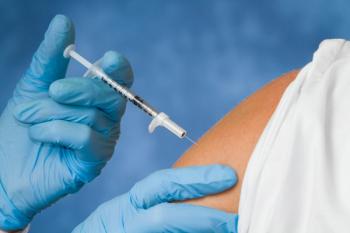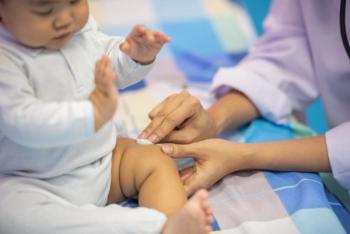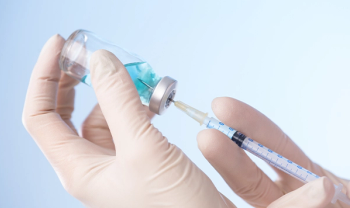
Vaccines to Protect the Young and the Old Against RSV Show Promising Results in Phase 3 trials
Despite decades of research, no available vaccine targets respiratory syncytial virus (RSV), a disease that causes hundreds of thousands of deaths worldwide among young children and older adults. Interim results of two late-stage trials of Pfizer’sRSV prefusion F vaccine suggest the vaccine is efficacious, although the low RSV infection rates during the high COVID-19 pandemic years limited some of the findings.
While RSV causes just a cold in most people, the lower respiratory tract version is associated with an estimated 3.6 million hospital admissions and more than 100,000 deaths among children under 5 worldwide each year, the vast majority in low- and middle-income countries.
Among adults 65 and older, RSV is linked to 60,000 to 160,000 hospitalizations and 6,000 to 10,000 deaths annually in the United States. The figures have a wide range because so many other deadly lower respiratory tract infections afflict frail older adults, especially in institutional settings, that teasing out how many are attributable to RSV is difficult.
There is no approved vaccine. There’s a lot of promise, however, and that could change.
Two research articles published in the April 5 edition of the New England Journal of Medicine presented interim analyses of data from multi-center, international phase 3 clinical trials of what is known as an RSV prefusion F protein-based vaccine — RSVpreF for short.
Both are bivalent vaccines — they provide protection against two viral subtypes, subtypes A and B) — and both are being developed by Pfizer. The results reported in the NEJM showed considerable success at preventing disease, particularly moderate disease in the elderly and severe disease in newborns and young infants whose mothers were vaccinated during pregnancy. Few side effects were reported by the researchers.
Both studies were afflicted by really bad timing. They began in 2019, as the COVID-19 pandemic raged. Seasonal patterns of RSV were significantly altered, and infection rates were unusually low. As a result, neither trial had enough power to show success with all primary endpoints or subgroups. Confidence intervals were wide.
The Maternal Immunization Study for Safety and Efficacy (MATISSE) trial enrolled 7,392 pregnant women in 18 countries and divided them into groups that received either the vaccine or placebo between 24 and 36 weeks’ gestation (late second and third trimesters).
Interim
No safety concerns were detected for mothers or children.
The RSV Vaccine Efficacy Study in Older Adults Immunized Against RSV Disease (RENOIR) trial enrolled 35,971 adults ages 60 and older in seven countries. RENOIR, like MATISSE, was a double-blind, randomized, placebo-controlled study.
Interim
Severe disease cases (hospitalization and illness requiring oxygen or mechanical ventilation) were not included in the analysis because there were too few to meet pre-determined cutoffs for statistical significance. And while subgroup analyses based on age (60 to 69, 70 to 79, or 80 and older) and risk status (no high-risk conditions vs. one or more) found similar results, participants in the youngest group far outnumbered the others and confidence intervals were wide.
The RSVpreF vaccine group reported more local vaccine site reactions than those who received the placebo, while systemic reactions were similar. Serious adverse events also were similar (2.3% in each group) but one case of Guillain–Barré syndrome that developed six days after injection and another of Miller–Fisher syndrome (a subset of Guillain–Barré) that developed eight days after were deemed to be intervention-related and warranting further study. Both study volunteers largely or fully recovered.
An accompanying
Given the pandemic-suppressed participant numbers that sapped both studies’ power to produce statistically significant findings for some endpoints in the interim data, later analyses based on additional data are particularly important. “We are only at the beginning of the end,” Karron concluded.
Pfizer sponsored, designed and conducted both trials; was responsible for data collection, analysis and interpretation; and the first draft of the manuscripts were written by medical writers paid by Pfizer under the direction of the more than 70 authors combined (many of them affiliated with Pfizer). The articles said all data were available to the authors.
Pfizer is leading the race to bring an RSV vaccine for pregnant women to market, Rosanna Sutherby, Pharm.D.
Newsletter
Get the latest industry news, event updates, and more from Managed healthcare Executive.























